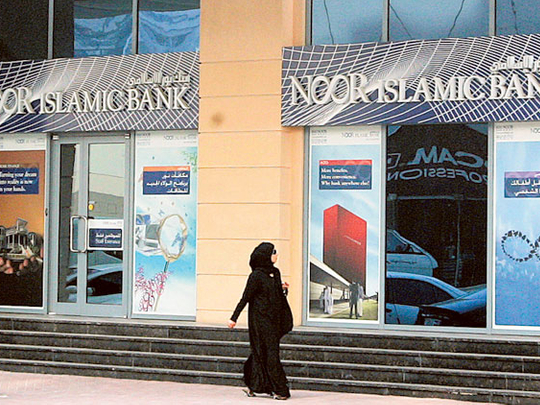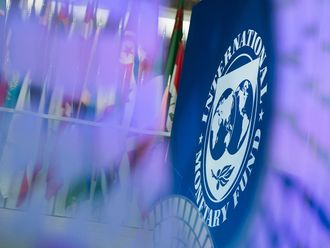
Dubai: A $500 million sukuk from Turkiye Finans this week was just the latest in a flood of international debt issues from Turkey. But the identity of the arranging banks, and the investors who bought the issue, pointed to a shift in capital markets.
Of the four banks arranging the deal for Turkiye Finans, an Islamic bank majority-owned by Saudi Arabia’s National Commercial Bank, two were based in the Gulf: NCB Capital and Dubai’s Noor Islamic Bank.
And Middle Eastern investors dominated buying of the sukuk, taking 51 per cent of the deal, which received just under $2 billion in orders.
In the past, European arrangers and investors dominated issuance of international bonds from Turkey. But in recent months the Gulf has started to play a major role, for commercial and possibly even political reasons.
“You will find more demand from investors in this region, in particular banks which are fairly liquid and sovereign wealth funds, to invest in financing in Turkey, be it through private placements, new issuances, or the public debt capital markets space,” said Georges Elhedery, head of global markets in the Middle East and North Africa (Mena) for HSBC.
“These investment flows are a developing trend as Turkey, which has a low savings rate, looks to tap the deep and liquid capital pools in Mena to fund its 2023 Vision, which includes investing some $350 billion in transport and other infrastructure.”
Boom
Turkey’s upgrade to investment status by Fitch Ratings last November, and expectations that it will secure similar ratings from the other two major agencies, have fuelled an explosion of international issuance this year.
Turkish companies have issued about $9.5 billion of US dollar-denominated bonds so far this year, compared to a total of $16.5 billion for the whole of 2012, accoding to John Bates, corporate fixed income analyst for emerging markets at PineBridge Investments.
About $10 billion of last year’s Turkish issuance came in the final four months of the year, and was dominated by banks.
A few years ago, Gulf arrangers and investors might have been expected to play only a small role in Turkish bond sales; their attention was fixed on their own region, and Turkey focused on Western capital markets.
But the Gulf is central to the current stream of issuance.
Another Turkish bank, AlBaraka Turk, the local unit of Bahrain’s Al Baraka Bank, is expected to price a bond early next week, and three of the mandated arrangers are Gulf-based: Dubai’s Emirates NBD, Abu Dhabi’s Al Hilal Bank and Qatar’s Barwa Bank.
One reason for the shift is Turkey’s move into Islamic finance. After developing the industry only slowly for years, Turkey issued its first sovereign sukuk last September; nearly 60 per cent of the $1.5 billion issue was placed among Middle Eastern investors.
The appearance of the sovereign sukuk has facilitated more issuance by Islamic banks in Turkey, which is meeting strong demand among cash-rich Islamic funds in the Gulf that are unable to satisfy their appetite for sukuk within the region.
“Turkish issuers want to tap the liquidity that sits with money managers in this region,” said Chavan Bhogaita, head of markets strategy at National Bank of Abu Dhabi.
The fact that three of Turkey’s four Islamic banks are affiliates of Gulf banks has also helped steer sukuk issuance to the region.
Sales of Turkish sukuk to Gulf investors may increase further as Turkey expands its offerings; Istanbul is working on new regulations to allow use of a wider range of sukuk structures, which could see Islamic bonds used for project finance and infrastructure development.
Pricing
There are other factors behind the trend, however. One is Turkey’s increasing emphasis on developing political and economic ties with the Gulf, rather than merely focusing on the West, as the country seeks to play a more active diplomatic role in the Middle East and diversify its trade.
Two-way trade between Turkey and the six countries in the Gulf Cooperation Council jumped 60 per cent to $22 billion in 2012, according to a report from a joint economic committee. Growing economic ties have familiarised Gulf institutions with Turkish issuers.
Pricing is also a factor. A dramatic compression of yields in the Gulf over the past 18 months, partly because of increasing investor confidence in the area, has reduced the returns from bonds issued within the region.
That is prompting Gulf investors to take a fresh look at the yields on offer from Turkey, which are generally higher for similar credit ratings.
For example, Sharjah Islamic Bank, based in the UAE and rated BBB+, priced a five-year, $500 million sukuk this month at a profit rate of 2.95 per cent.
That was one full percentage point below the 3.95 per cent profit rate offered on the five-year Turkiye Finans sukuk, which is rated BBB, just one notch lower than the Sharjah issue.
“Despite the flurry of recent issuance, the Turkish corporate sector is still relatively limited in scale and is dominated by the banks,” PineBridge’s Bates said.
“The banks still offer decent value when compared to their EEMEA (Eastern Europe, Middle East and Africa) peers, yielding about 50 basis points more than other BBB-rated banks. In general, they also compare well on credit fundamentals.”












